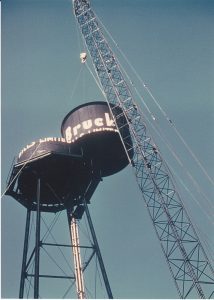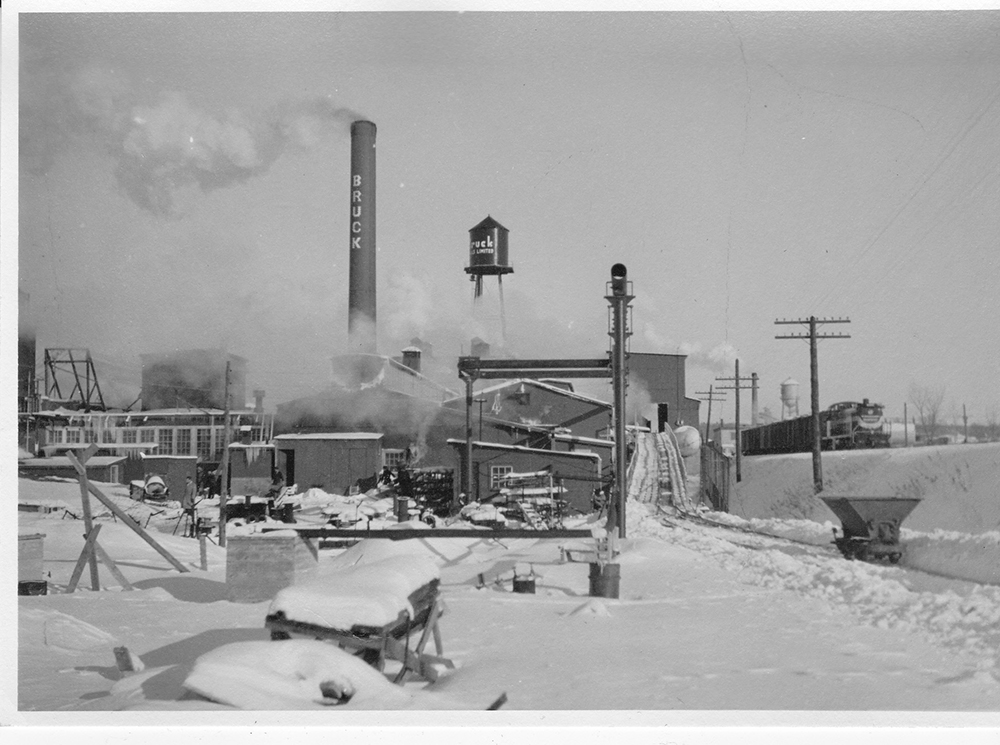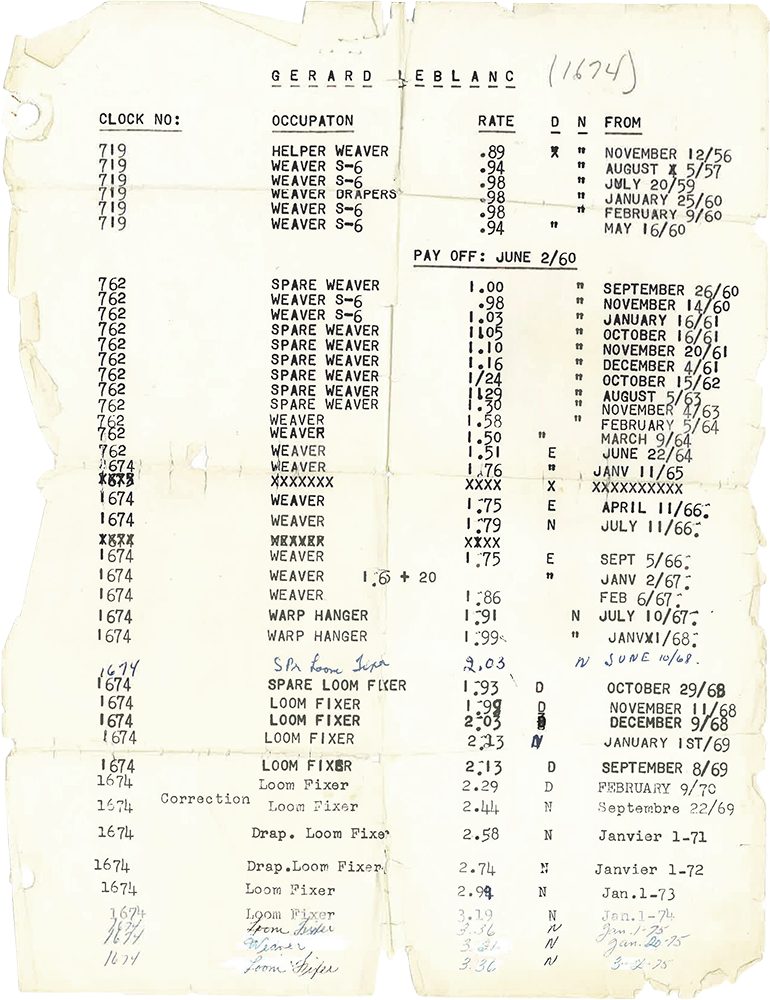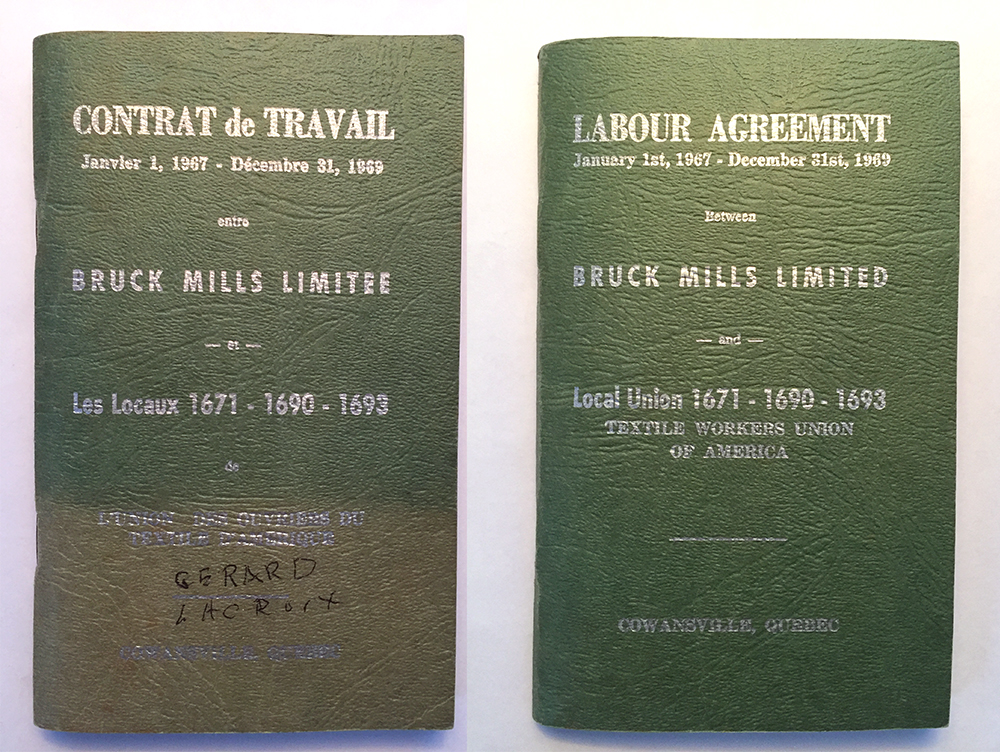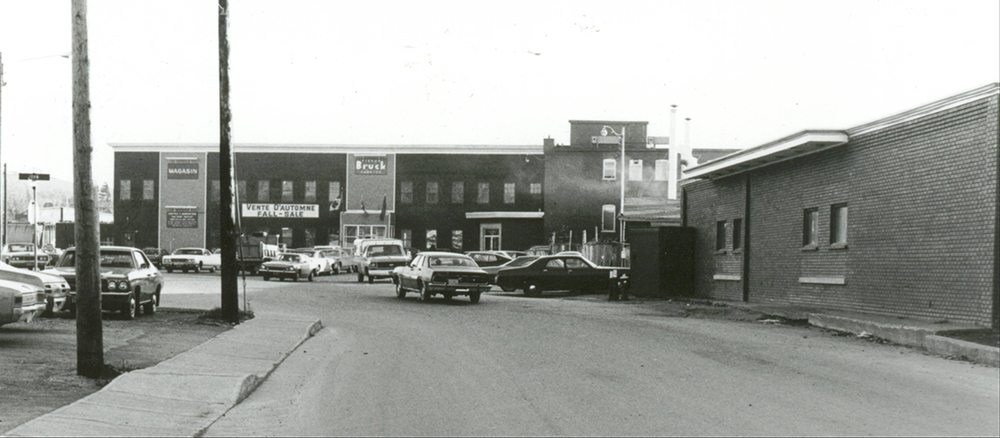The 1973 strike, an industry in decline
The 1960s and 1970s see many labour disputes in Quebec and Bruck Mills is no exception. A major strike breaks out in 1973, mainly over wages and hours of work. The textile industry, already facing the challenge of foreign competition, is suffering.
The walkout
Production is paralyzed in the three plants operated by the company in Quebec and the strike affects more than 1 100 employees. It lasts seven weeks at the Cowansville and Saint-Jean-sur Richelieu plants and 10 weeks in Sherbrooke. Bruck suffers considerable financial losses.
Strikes and unionization are experienced painfully by both leaders and workers. The strikers push hard, so much so that one former company executive talks about intimidation when he describes the “half-dozen thugs with baseball bats” who broke into his office. Tensions rise. Yet, he says, the strike resulted in narrowing inequitable wage gaps and putting an end to certain unjustified privileges.
A mixed result
After the conflict, some gains are made to raise wages. While the strike has left its mark, the return to work is relatively peaceful. However, the company must compensate for the wage increase, which has an impact on production costs. It decides to invest in machinery, inevitably reducing the number of workers in the plant.
Promotion of French as a workplace language
The linguistic debates of the 1960s and 1970s in Quebec lead to the implementation of measures to promote French as a language of work, and the Office de la langue française organizes meetings with representatives of various industries. The questionnaire filled out by the personnel manager of Bruck Mills reported that in 1970, although 90% of the company’s employees understand and speak French, English is still widely used in administration and sales. French is primarily spoken inside the factory and employee communications are bilingual. The company does not have a lexicon of technical terms in French and English terms are often used by French speakers.


